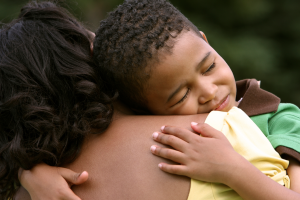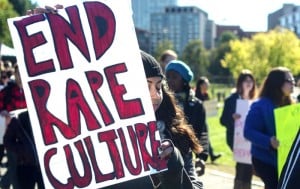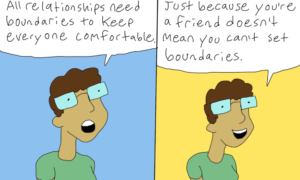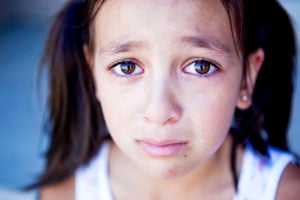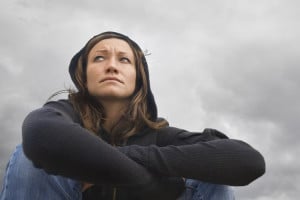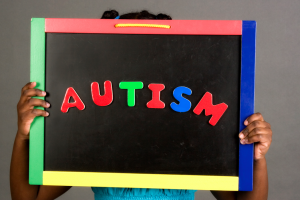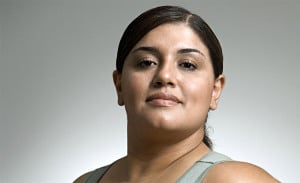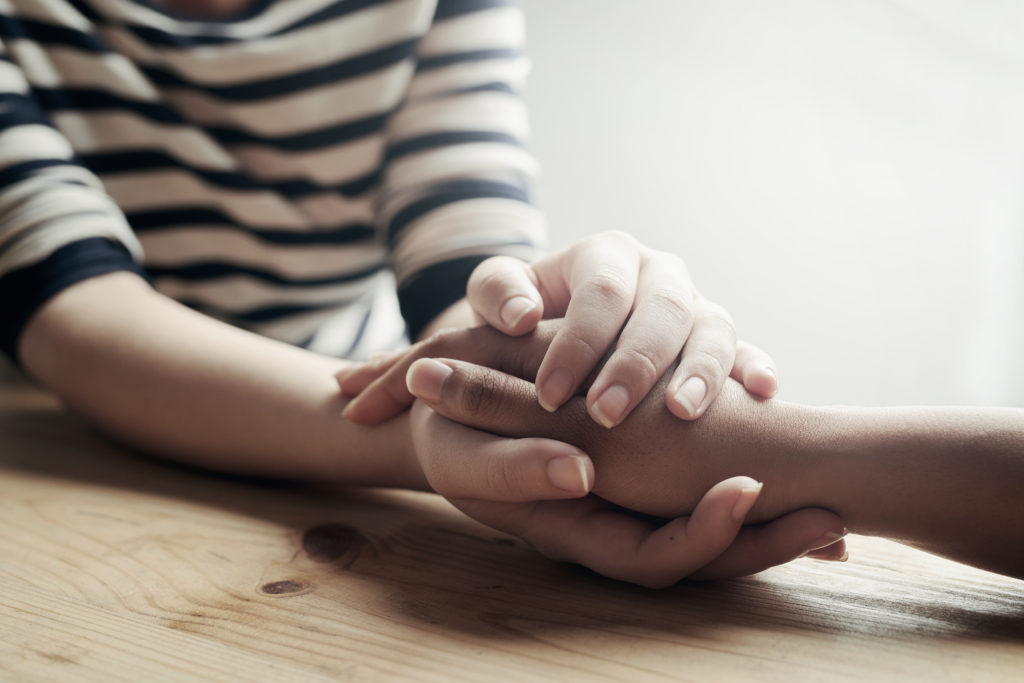
A person holding another person’s hand.
Once while sitting at a faculty dinner at UC Berkeley, a tenured professor spent two solid hours blatantly staring at my chest. A couple weeks ago, I saw my rapist featured in the glossy pages of GQ magazine for his activism.
Considering the statistics, neither I nor any of the following survivors mentioned in this article, are exceptional.
With the non-stop plethora of survivors speaking up about their experiences with sexual assault, many are left wondering how they might support the numerous people in their lives who trust them enough to speak their truth.
A whopping one in 5 women who attended a residential college during a 4-year span said they had been sexually assaulted, according to a 2015 national poll by the Washington Post and the Kaiser Family Foundation.
And rates of sexual assault in all realms rise exponentially when the intersection of race, sexuality, and class are considered.
Here are some numbers:
- About 61% of bisexual women have survived sexual assault.
- Native American women are more than twice and likely to be victimized than Black, White and Asian women.
- Approximately 21% of transgender, genderqueer, nonconforming (TGQN) college students have been sexually assaulted, compared to 18% of non-TGQN females, and 4% of non-TGQN males.
For many survivors—myself included—looking at the numbers isn’t surprising. As we’ve seen with the recent #MeToo movement, even within our communities, sexual assault and harassment are common experiences for marginalized people and they occur in any and all walks of life.
In this article, I’m focusing on the impact of both on community organizing and activism because they can and do push activists out of movement work.
Creating safer communities—be they queer, academic or race-based—is paramount if we want to resist racism and heterosexism in the long run. But the reality is that survivors are often faced with individual opposition, disbelief, and institutional hurdles when they come out.
This list aims to provide a starting point and some guidance for those trying to support the brave people in our lives who are survivors and trust us enough to come out.
1. Take the Story Seriously
Wagatwe Wanjul is a survivor of campus sexual assault and a gender justice activist. She does media activism to inform the public and disrupt common misconceptions about her and others’ experiences.
Wanjul says assailants “do preemptive work to make people think they couldn’t for a second cause that harm.” Indeed, each of the survivors I spoke with has assailants who are community organizers, whose politics and personas often seem opposed to committing gender-based violence.
One of the hardest truths many survivors face is that the person who hurt them isn’t a “bad guy,” or person. We know that rapists are on the swim team, in labor unions, and make Oscar-winning movies.
But when it comes to survivors in our lives and outside of national media, there’s a real obstacle confronting the hard reality that good seeming people are also capable of causing massive harm.
When I told a friend of over 20 years that I had been raped by my partner, her response was “I’m sure he didn’t mean it.” This simple statement silenced me and made it so that I never again trusted her to support me when it came to sexual assault.
By simply accepting that someone you didn’t expect to be capable of causing harm did, in fact, commit gender-based violence, you’re making yourself a safe place to land for the survivors in your life.
Before Kathleen Gutierrez made national news with her sexual harassment case against a tenured professor at UC Berkeley, she was a community activist. She was discouraged to pursue accountability by fellow organizers when sexually harassed within movement work.
She says there were “parties from different sides minimizing my experience.” For survivors, simply finding someone who validates your experience can be a challenge and, sometimes, impossible.
Wanjul explains the obstacle can be recognizing that “predators are multifaceted human beings. Just because this person treated you well, doesn’t mean they were like that with everyone else.” In order to support the survivors in your life, the first step can be acknowledging the truth that someone you know—and maybe even love—can and did cause harm.
2. Be Institutionally Flexible
Teachers, workplace supervisors, and administrators have more power than they think. As a part of a bigger educational or economic system, they can help the healing process for survivors by providing flexibility with deadlines and assignments.
Both Wanjul and Gutierrez were victimized as university students. Wanjul was an undergraduate at Tufts University when she was assaulted by a fellow student. She says, “My grades were bad because I got raped,” and later, “[Tufts] expelled me when I started speaking up.”
Wanjul says the hardest part of what she went through was the institutional response. “How I was treated by my community—or Tufts—was more traumatizing to me than my assault.”
Gutierrez and Wanjul agree that institutions need to have more flexibility when it comes to meeting traditional requirements. Because of their healing processes, survivors might require more time to complete tasks.
Gutierrez is a graduate student at UC Berkeley. Sexual harassment seriously impacted her ability to complete her studies.
During her office hours, Blake Wentworth—who has since been fired from the university—repeatedly commented on her physical appearance. He also made advances toward her.
Gutierrez says his actions made it so that, “I couldn’t enroll in classes, I didn’t want to be on campus for a couple semesters.” In light of sexual assault, teachers and administrators must be flexible with institutional demands.
Gutierrez says she benefitted from understanding mentors that kept her studies on track. Now she says UC Berkeley would greatly benefit from “some sort of faculty advocate who could make sure my focus wasn’t derailed.”
Wanjul says that whether universities are sufficiently equipped to engage with survivors comes down to whether they have the proper education. “I wish people were trained [in] trauma-informed response.”
3. Begin Shifting Your Internalized Notions of Rape Culture Now
What’s your personal definition of gender-based violence? Who do you envision when you think of a survivor? How are these ideas limited by race, gender, and class?
Shifting the burden off of victims means answering these questions and revising your own notions of perfect survivor-hood. Kate McDonough writes that patriarchy and rigid definitions of rape make it so that survivors can never provide adequate proof.
Instead, people “Question data, ask for better numbers. We are caught in a holding pattern in which we force victims to carry weight for the rest of us until we’re ready to do better, and we are never ready to do better.”
We all have deeply ingrained and frequently problematic understandings of gender-based violence. Even those of us who are ourselves survivors can hold on to insidious ideas of ‘proper victimhood.’ Working on these things before someone comes out to us can make us much better listeners and accomplices or allies.
Lorenzo Herrera y Lozano is a publisher and the Executive Director of Justice Matters Press. It took him 24 years to come out as a survivor. He attributes this in part to the fact that socially, “We think of rape in narrow ways.”
Herrera y Lozano is careful not to conflate his story with those of women and femmes who are survivors but points to an equally pervasive rape culture within queer male communities.
As a result, he wants “A broader conversation in which queer men take on and challenge the idea that it [sexual assault] is okay. That consent is only relevant when it comes to women and female bodies.”
Gutierrez agrees. She thinks a key part of supporting survivors is a significant cultural change; particularly in movement work. Gutierrez says it’s time to take sexual assault seriously.
She wants activists to push back against, “This culture of extreme dedication that someone makes to their organization. You throw around words like petty bourgeois to describe someone who throws their own desires and needs in front of the movement,” often at the expense of consent and gender justice.
Many of the suggestions from Wanjul, Gutierrez, and Herrera y Lozano center eradicating internalized rape culture. Wanjul says allies can begin to interrupt the silence and mediate the gross impact of rape by pushing back against their instincts.
Wanjul says people need to “Listen to the survivors in their lives and to challenge their knee-jerk reactions.”
4. Build Community Because Surviving Can Be Lonely
Wanjul, Lorenzo Herrera y Lozano, and Gutierrez each emphasized how sexual assault—especially when perpetrated by community members—is alienating. For Wanjul, the incident robbed her of a place she had hoped would fit her scholarly interests; college.
She says, “I feel like that was the place I would have belonged the most.” Because of her rape and subsequent expulsion, Wanjul did not get to experience college as the place of intellectual awakening, but of pain and disappointment.
Gutierrez and Herrera y Lozano illustrate something a therapist once told me, “Shame is sticky and it sticks to the wrong people.” Survivors often struggle with internalized stigma and victim blaming that prevents disclosure and self-advocacy.
Gutierrez says, “I had been sexually harassed by comrades. I didn’t have the language to address the situation. It’s something I just held on to.” Herrera y Lozano explains, “In every single instance, I felt guilty.”
All of the stories from Wanjul, Gutierrez, and Herrera y Lozano point to sexual assault as a systemic as opposed to an individual issue.
A community-oriented reaction from friends, partners, family and community members is paramount to inhibiting the personal shame associated with being the victim of gender-based violence. Wanjul says, “How the community responds makes or breaks how the survivor responds to that trauma.”
***
For my last two articles, I’ve spoken with nearly 10 people who either worked with or are themselves, survivors. Frequently, they are both.
While I spent the duration of this piece emphasizing the needs people have after they’ve been victims of gendered violence, no one should assume the people interviewed here are in any way, unidimensional victims. Far from it.
Wanjul, Gutierrez and Herrera y Lozano are gifted advocates, organizers, and writers. They illustrate the best of our communities and highlight Wanjul’s simple and profound point that “If we cared about and trusted people in every echelon of society I think we’d get very far in eradicating sexual violence.”
[do_widget id=’text-101′]
Kim is a teacher, scholar and organizer finishing her PhD in Ethnic Studies and Gender, Women’s and Sexuality Studies at the University of California, Berkeley. Her scholarship and community work engages the intersection of cross-racial coalitions, gender inequality, class oppression and queer sexuality. Kim has worked extensively with the LGBTQ Youth Space, is a collective member of Third Woman Press: Queer and Feminist of Color Publishing and member of Theatre First. Find more of Kim’s writing here.
Search our 3000+ articles!
Read our articles about:
Our online racial justice training
Used by hundreds of universities, non-profits, and businesses.
Click to learn more





